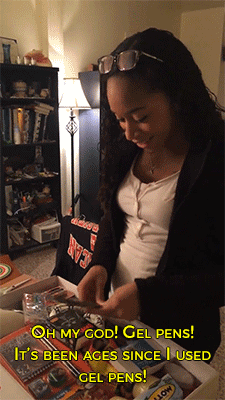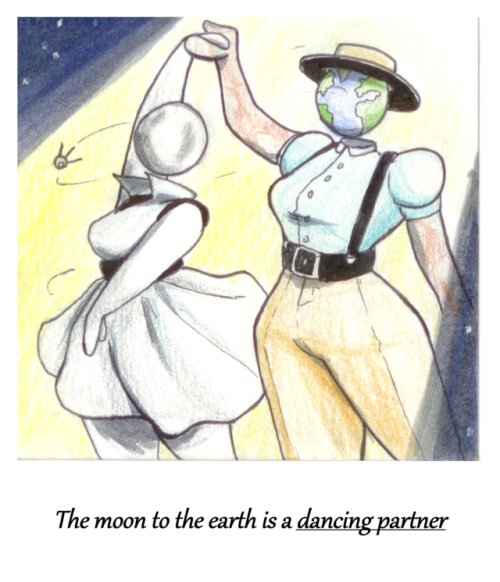What Are Memories Made Of? Study Sheds Light On Key Protein

What are memories made of? Study sheds light on key protein
Ask a nonscientist what memories are made of and you’ll likely conjure images of childhood birthday parties or wedding days. Charles Hoeffer thinks about proteins.
For five years, the assistant professor of integrative physiology at CU Boulder has been working to better understand a protein called AKT, which is ubiquitous in brain tissue and instrumental in enabling the brain to adapt to new experiences and lay down new memories.
Until now, scientists have known very little about what it does in the brain.
But in a new paper funded by the National Institutes of Health, Hoeffer and his co-authors spell it out for the first time, showing that AKT comes in three distinct varieties residing in different kinds of brain cells and affecting brain health in very distinct ways.
The discovery could lead to new, more targeted treatments for everything from glioblastoma—the brain cancer Sen. John McCain has—to Alzheimer’s disease and schizophrenia.
“AKT is a central protein that has been implicated in a bevy of neurological diseases yet we know amazingly little about it,” Hoeffer said. “Our paper is the first to comprehensively examine what its different forms are doing in the brain and where.”
Discovered in the 1970s and known best as an “oncogene” (one that, when mutated, can promote cancer), AKT has more recently been identified as a key player in promoting “synaptic plasticity,” the brain’s ability to strengthen cellular connections in response to experience.
“Let’s say you see a great white shark and you are scared and your brain wants to form a memory of what’s going on. You have to make new proteins to encode that memory,” he said. AKT is one of the first proteins to come online, a central switch that turns on the memory factory.
But not all AKTs are created equal.
For the study, Hoeffer’s team silenced the three different isoforms, or varieties, of AKT in mice and observed their brain activity.
They made a number of key discoveries:
AKT2 is found exclusively in astroglia, the supportive, star-shaped cells in the brain and spinal cord that are often impacted in brain cancer and brain injury.
“That is a really important finding,” said co-author Josien Levenga, who worked on the project as a postdoctoral researcher at CU Boulder. “If you could develop a drug that targeted only AKT2 without impacting other forms, it might be more effective in treating certain issues with fewer side-effects.”
The researchers also found that AKT1 is ubiquitous in neurons and appears to be the most important form in promoting the strengthening of synapses in response to experience, aka memory formation. (This finding is in line with previous research showing that mutations in AKT1 boost risk of schizophrenia and other brain disorders associated with a flaw in the way a patient perceives or remembers experiences.)
AKT3 appears to play a key role in brain growth, with mice whose AKT3 gene is silenced showing smaller brain size.
“Before this, there was an assumption that they all did basically the same thing in the same cells in the same way. Now we know better,” Hoeffer said.
He notes that pan-AKT inhibitors have already been developed for cancer treatment, but he envisions a day when drugs could be developed to target more specific versions of the protein (AKT1 enhancers for Alzheimer’s and schizophrenia, AKT2 inhibitors for cancer), leaving the others forms untouched, preventing side-effects.
More animal research is underway to determine what happens to behavior when different forms of the protein go awry.
“Isoform specific treatments hold great promise for the design of targeted therapies to treat neurological diseases with much greater efficacy and accuracy than those utilizing a one-size-fits-all approach,” the authors conclude. “This study is an important step in that direction.”
More Posts from Ourvioletdeath and Others
❤❤❤









Woman Surprise Her Girlfriend With The News She Will Be Her Kidney Donor - Watch the full video
Rage
Creative title, right? Probably not to be honest, it sounds like something a hipster would post, or an emotional teenage girl(not being sexist, just providing a cliché example). Nonetheless, I feel rather compelled to put that as the title, mainly because it’s something that I feel pretty often. Not necessarily the anger, but the violent aspect of rage, that nearly uncontrollable violence that builds up inside you, is something that I feel virtually every day. Goodness, I sound so whiny, but I feel like I have to express it somehow or else it’s going to eat away at my emotional health.
I recognize that violence isn’t the answer, but it’s infuriating to be unable to do anything other than think about what you would do to someone who truly deserves to suffer. Of course it sounds rather sociopathic, but there are people to truly need to get whats coming to them from time to time.
It’s hard to describe the feeling I get... it’s a mixture of frustration with anxiety, which produces helplessness and then finally creates the violent urge to hurt someone. I have never done anything under the influence of this urge except for once, which I would rather not get into as I was luckily stopped before things got too far. I learned to control the rage, but the build up of it makes it harder and harder to control. I realized that working out often helps reduce the buildup, but what happens when you don’t have time to work out and you are constantly placed under a lot of stress? Well, you have several options; blow up, take it out on someone, or take a break.
Of course, the most socially acceptable answer is to take a break, which would usually require going out for some fresh air, but in more extreme circumstances it could mean take a day or two off from work or school, and that SUCKS. Taking a day off will just add to your workload afterwards, since you’ll have to make up for the time you lost the last day. Conversely, what would happen if you let your rage out? Well, if you let it out on someone else, you could hurt them, both mentally and physically. And just blowing up could get you kicked out of your workplace, and maybe even sent to jail if things get physical.
So what is there to do? This is a problem that I find myself to be facing rather often, and it always feels like a lose-lose situation. Maybe by talking about it things could get better, but who really wants to hear someone bitch about their life? I personally would find that to be extremely boring, and it might not even work! The way I found to be a good reliever is just to write it out, but its taken me several days to put this all into something concise, a so what happens to those people who don’t have the time? I guess they turn to drugs? I’m not really sure to be honest.
Maybe my point got lost while I was blabbering about this whole thing, but what I meant to emphasize was that stress, rage and anger can easily build up in people, and sometimes there really is just no way to relieve it, which is extremely frustrating to me.
Goodness, I wrote way too much... Oh well, it helped me vent, which I guess was the purpose of this. If anyone ever actually reads this, I hope you’ve enjoyed my rather long rant on rage and anger, and I hope it was somehow beneficial to you, in whatever way that may be.

New path into bipolar disorder comes to light
Bipolar disorder (BD) is a multifactorial brain disorder in which patients experience radical shifts in mood and undergo periods of depression followed by periods of mania. It has been known for some time that both environmental and genetic factors play important roles in the disease. For instance, exposure to high levels of stress for long periods, especially during childhood, is one factor associated with development of BD.
New research published in Frontiers in Behavioral Neuroscience connects the dots between two genes involved in the brain’s response to environmental stimuli — called EGR3 and BDNF — and may explain the impaired resilience of BD patients to respond to events, including stress. The study not only provides new insights into the biology of BD, but also suggests that EGR3 could be a potential drug target.
Immediate early genes (IEGs) are a class of genes that respond very rapidly to environmental stimuli, including stress. IEGs respond to a stressor by activating other genes that lead to neuronal plasticity — that is, a change in form and function o brain cells in response to changes in the environment. Ultimately, the process of neuronal plasticity gives the brain the ability to learn from and adapt to new experiences.
One type of protein induced by IEGs is the so-called Early Growth Response (EGR) proteins, which translate environmental influence into long-term changes in the brain. These proteins are found throughout the brain and are highly produced in response to environmental changes such as stressful stimuli and sleep deprivation. Without the action played out by these proteins, brain cells and the brain itself cannot appropriately respond to the many stimuli that are constantly received from the environment.
Effective neuronal plasticity also depends on regulatory factors called neurotrophins that promote development and survival of brain cells. Brain-derived neurotrophic factor (BDNF), the neurotrophin mostly found in the brain, has been extensively investigated in BD patients and has been suggested as a hallmark of BD. Indeed, some studies have shown that serum levels of BDNF are reduced in BD patients during periods of depression, hypomania, or mania. Other studies have shown that regardless of mood state, BD patients present reduced levels of BDNF. Overall, changes in BDNF levels seem to be a characteristic found in BD patients that may contribute to the pathophysiology of the disease.
The new study by an international team of researchers from Universidade Federal do Rio Grande do Sul in Brazil, University of Arizona College of Medicine in the United States and McMaster University in Canada connects the dots between these two players to explain the impaired cellular resilience observed in BD that in the grand scheme of things may relate to the impaired resilience presented by BD patients to respond to events, including stress.
In a previous study by the group in 2016, one type of IEG gene known as EGR3, that normally responds to environmental events and stressful stimuli, was found to be repressed in the brain of BD patients. This suggests that when facing a stressor, the EGR3 in BD patients does not respond to the stimulus appropriately. Indeed, BD patients are highly prone to stress and have more difficulties dealing with stress or adapting to it if compared to healthy individuals. The research group is now suggesting that both EGR3 and BDNF may each play a critical role in the impaired cellular resilience seen in BD, and that each of these two genes may affect each other’s expression in the cell.
“We believe that the reduced level of BDNF that has been extensively observed in BD patients is caused by the fact that EGR3 is repressed in the brain of BD patients. The two molecules are interconnected in a regulatory pathway that is disrupted in BD patients,” says Fabio Klamt, leading author of the article.
The authors also add that the fact that EGR3 responds very quickly to environmental stimuli renders the molecule a potential drug target. “It is possible to imagine that EGR3 may be modulated in order to increase its expression and that of BDNF, which may have a positive impact on BD patients,” says Bianca Pfaffenseller, a scientist working at Hospital de Clínicas de Porto Alegre, in Brazil, and the first author of the study.
The idea that mental disorders should be seen as any other chronic disease in which the underlying biology plays an important role has replaced the old descriptions of mental illnesses as the result of bad psychological influences. As Nobel prize laureate Eric Kandel has said, “all mental processes are brain processes and therefore all disorders of mental functioning are biological diseases.” The perspective article authored by Fabio Klamt and colleagues supports this view by offering new insights into the underlying biology of this lifelong and devastating mental disorder affecting millions of people worldwide.

Isn’t it funny how on TV : 1) getting shot in the shoulder is always treated like it’s a minor flesh wound. It’s not like you’ve probably sustained serious or even permanent damage to your arm, or even gone through your lung…nope. 2) People are always dying of some vague infectious disease that’s only hinted at. I mean, it’s probably TB, but still, it’d be nice to get some closure. 3) People catching something after a walk in the rain and then dying. 4) Cardiac arrest is like, totally NBD. A couple of (really badly performed) pumps on the chest, and the victim is up and talking as if they didn’t just drop dead. Like, if you’ve really just arrested, you’ve probably got 5 broken ribs, an ET tube in your throat and you’ve just earned yourself a ticket to ITU.






this was an assignment from a bit ago but i kept forgetting to scan it in >.>
Last Night
I woke up at 5 in the morning with only on thing one my mind; you. I can’t get you out of my thoughts. I spent a good 3 hours trying to sleep while thoughts and memories of you circled my mind. It’s been going on for days, ever since I decided to try to remove you from my life.
I know I hurt you, so bad that I doubt you’d ever forgive me, I deserve that. The worst part is, I don’t even know why I acted like a dick. It was partially because whenever we talked I would always get this feeling in my stomach. Kinda like butterflies? It was a good feeling, but also a painful one. It made me want to just beg you to come back and say that I was wrong, that I love you and that hasn’t ever changed. I never stopped loving you, not for a second. I wish so much that I could be with you right now, for everything to be back to normal, but I know that it’s too late. I acted like a dick because I didn’t want to give in, I didn’t want to come back, because I knew, or at least I was scared that it was all just going to be like before; with so much fighting and jealousy and just... a lot of fear. I hated that part of our relationship because there were times in which I just wasn’t happy, and I wished that I could fix it. I wish that I could fix all my jealousy in one go, but it doesn’t work that way.
That’s why I did all this. I can’t come back to you not having changed, not that you’d let me, I bet you want nothing to do with me at this point, and it’s really all my fault. But right now, I need to change, to grow mature enough so as not to be so insecure, because honestly, it sucks being like that, especially in a long distance relationship. I don’t want to keep resenting and being jealous, and I want both of us to grow from this, because we both made mistakes.
You have no idea how sorry I am for so many things, but I want you to know, that I don’t regret anything. Being with you was amazing, it was beautiful and special. Yes, sometimes it was ugly and painful, but I’ll always remember everything we did together, because you really did make me happy, but I need to fix myself right now. I want both of us to be happy, and I felt like we honestly wouldn’t be had we stayed together. I feel that I wouldn’t have been, because it felt like I just didn’t matter to you at all once you got to university, and that you probably would have replaced me within the month. And I hated that feeling. I couldn’t keep going with that because there was really no way to fix it while we were together, not with all the jealousy.
I want you to be happy, and you have no idea what I would do to make you happy, but right now that means that I have to make myself better, because I really, truly, honestly hope that once day, I’ll be able to find you again, and that you’ll accept me. I couldn’t give you what you wanted, but I know that in the future I will, because I’m getting my life together. I’m more active, more confident, more responsible, I've been working my ass off to improve myself, and I’m going to keep going, because I want to be the best I can ever be.
Oddly enough, that isn’t good enough for me though. Yes, I’m improving, but the longing doesn’t leave. The regret doesn’t stop eating me from within. I feel empty, and there’s nothing that can fill that void now. Yes, there’s one thing, but no matter how hard I try, I doubt it’ll ever happen again, because I don’t deserve you.
I know you said that a sophomore asked you out. As much as it hurts, I’m really happy for you. If you really do like him, then honestly, that’s great, because I hope that he can make you happy, better than I could, at least. Don’t get me wrong, I wish it were me dating you, I wish it were me that can kiss you, hold you, and just make you feel loved everyday, but I had my chance. I just hope that you’ll give me another one in the future. I know I don’t deserve it, but I can’t stop loving you. Every time I think of you, I just get filled with this weird warmth inside. And then it turns to ice as I realize that you may never think of me like that again.
I know it’s selfish, but I hope you feel the same way for me. I hope that you do love me back, because even if I don’t deserve it, I want to be deserving of it in the future. Right now, I know that I wouldn’t be able to make you happy, and I know you’ll find someone else who can. I just hope that I’ll reach that level one day, so that I can come back into your life, because I still love you, llamagirl, infinitely. You may despise me right now, and you have every right to, I know that I can’t fix all the hurt that I’ve done.
I meant it when I said that you were a miracle in my life, because you’re so wonderful and beautiful that you healed my wounds and kissed my scars. You worried for me when no one else did. You made me feel loved when I thought that I never deserved it.
Please, at the end of the day, save the last dance for me, I swear my dancing will have improved by then. Je T’aime.
Mon amour pour toi ne dimiuera jamais. J’espere qu’un jour tu me pardonneras d’etre si stupide.
Language is Learned in Brain Circuits that Predate Humans
It has often been claimed that humans learn language using brain components that are specifically dedicated to this purpose. Now, new evidence strongly suggests that language is in fact learned in brain systems that are also used for many other purposes and even pre-existed humans, say researchers in PNAS.
The research combines results from multiple studies involving a total of 665 participants. It shows that children learn their native language and adults learn foreign languages in evolutionarily ancient brain circuits that also are used for tasks as diverse as remembering a shopping list and learning to drive.
“Our conclusion that language is learned in such ancient general-purpose systems contrasts with the long-standing theory that language depends on innately-specified language modules found only in humans,” says the study’s senior investigator, Michael T. Ullman, PhD, professor of neuroscience at Georgetown University School of Medicine.
“These brain systems are also found in animals — for example, rats use them when they learn to navigate a maze,” says co-author Phillip Hamrick, PhD, of Kent State University. “Whatever changes these systems might have undergone to support language, the fact that they play an important role in this critical human ability is quite remarkable.”
The study has important implications not only for understanding the biology and evolution of language and how it is learned, but also for how language learning can be improved, both for people learning a foreign language and for those with language disorders such as autism, dyslexia, or aphasia (language problems caused by brain damage such as stroke).
The research statistically synthesized findings from 16 studies that examined language learning in two well-studied brain systems: declarative and procedural memory.
The results showed that how good we are at remembering the words of a language correlates with how good we are at learning in declarative memory, which we use to memorize shopping lists or to remember the bus driver’s face or what we ate for dinner last night.
Grammar abilities, which allow us to combine words into sentences according to the rules of a language, showed a different pattern. The grammar abilities of children acquiring their native language correlated most strongly with learning in procedural memory, which we use to learn tasks such as driving, riding a bicycle, or playing a musical instrument. In adults learning a foreign language, however, grammar correlated with declarative memory at earlier stages of language learning, but with procedural memory at later stages.
The correlations were large, and were found consistently across languages (e.g., English, French, Finnish, and Japanese) and tasks (e.g., reading, listening, and speaking tasks), suggesting that the links between language and the brain systems are robust and reliable.
The findings have broad research, educational, and clinical implications, says co-author Jarrad Lum, PhD, of Deakin University in Australia.
“Researchers still know very little about the genetic and biological bases of language learning, and the new findings may lead to advances in these areas,” says Ullman. “We know much more about the genetics and biology of the brain systems than about these same aspects of language learning. Since our results suggest that language learning depends on the brain systems, the genetics, biology, and learning mechanisms of these systems may very well also hold for language.”
For example, though researchers know little about which genes underlie language, numerous genes playing particular roles in the two brain systems have been identified. The findings from this new study suggest that these genes may also play similar roles in language. Along the same lines, the evolution of these brain systems, and how they came to underlie language, should shed light on the evolution of language.
Additionally, the findings may lead to approaches that could improve foreign language learning and language problems in disorders, Ullman says.
For example, various pharmacological agents (e.g., the drug memantine) and behavioral strategies (e.g., spacing out the presentation of information) have been shown to enhance learning or retention of information in the brain systems, he says. These approaches may thus also be used to facilitate language learning, including in disorders such as aphasia, dyslexia, and autism.
“We hope and believe that this study will lead to exciting advances in our understanding of language, and in how both second language learning and language problems can be improved,” Ullman concludes.
No specific external funding supported the work. The authors report having no personal financial interests related to the study.
Just thought you should know I was browsing Archive Of Our Own and came across an actual fanfic about PIE. The fandom was listed as "languages (anthropomorphic)" and it had pairings such as "Mycenaean Greek/Minoan", "Gothic/Gaulic Latin" and "Pregermanic/Maglemosian". I just about died.

oh my god???!?
The reason aliens have not invaded Earth is due to our television transmission. Since they have no concept of televised entertainment, they view everything seen as fact.

Hey friends, my book on fighting depression, How Hard It Really Is, is on sale for only 1.99. From a painstaking year and a half of research, interviews, and surveys, take a journey with me through managing mental illness and navigating the surprising truths and myths about depression.
Ebook sale: https://www.amazon.com/How-Hard-It-Really-Is-ebook/dp/B073TX15LB
The paperback is also only 8.99 here: https://www.amazon.com/How-Hard-It-Really-Is/dp/0692910360
For my quick video on depression: https://www.youtube.com/watch?v=xggg6xFObIE
-
 cohesin liked this · 1 year ago
cohesin liked this · 1 year ago -
 koopstaknicca liked this · 3 years ago
koopstaknicca liked this · 3 years ago -
 pleasurehunter2000 liked this · 4 years ago
pleasurehunter2000 liked this · 4 years ago -
 minotaurconnoisseur reblogged this · 6 years ago
minotaurconnoisseur reblogged this · 6 years ago -
 houleguy liked this · 6 years ago
houleguy liked this · 6 years ago -
 xxdrvgodxx liked this · 6 years ago
xxdrvgodxx liked this · 6 years ago -
 makemykittypurr liked this · 6 years ago
makemykittypurr liked this · 6 years ago -
 stratus122 reblogged this · 6 years ago
stratus122 reblogged this · 6 years ago -
 stratus122 liked this · 6 years ago
stratus122 liked this · 6 years ago -
 aprilscent liked this · 6 years ago
aprilscent liked this · 6 years ago -
 artkstuff liked this · 6 years ago
artkstuff liked this · 6 years ago -
 djeannge reblogged this · 6 years ago
djeannge reblogged this · 6 years ago -
 ocean-light reblogged this · 6 years ago
ocean-light reblogged this · 6 years ago -
 thedarkunicornsworld liked this · 6 years ago
thedarkunicornsworld liked this · 6 years ago -
 hanswors liked this · 6 years ago
hanswors liked this · 6 years ago -
 vinayuniverse reblogged this · 6 years ago
vinayuniverse reblogged this · 6 years ago -
 laughingowlie-blog liked this · 6 years ago
laughingowlie-blog liked this · 6 years ago -
 magnastrum liked this · 6 years ago
magnastrum liked this · 6 years ago -
 di-dee reblogged this · 6 years ago
di-dee reblogged this · 6 years ago -
 una-zukin liked this · 6 years ago
una-zukin liked this · 6 years ago -
 overdose321 liked this · 6 years ago
overdose321 liked this · 6 years ago -
 futureperfect-pastfuture reblogged this · 6 years ago
futureperfect-pastfuture reblogged this · 6 years ago -
 yoraiga liked this · 6 years ago
yoraiga liked this · 6 years ago -
 love4loops liked this · 6 years ago
love4loops liked this · 6 years ago -
 graveyardtwat reblogged this · 6 years ago
graveyardtwat reblogged this · 6 years ago -
 graveyardtwat liked this · 6 years ago
graveyardtwat liked this · 6 years ago -
 kalasrandomstuff reblogged this · 6 years ago
kalasrandomstuff reblogged this · 6 years ago -
 iuricruz1 liked this · 6 years ago
iuricruz1 liked this · 6 years ago -
 bloggingtyme reblogged this · 6 years ago
bloggingtyme reblogged this · 6 years ago -
 bloggingtyme liked this · 6 years ago
bloggingtyme liked this · 6 years ago -
 henk-k-blog liked this · 6 years ago
henk-k-blog liked this · 6 years ago -
 2000bbyy-blog reblogged this · 6 years ago
2000bbyy-blog reblogged this · 6 years ago -
 mangosyfresas liked this · 6 years ago
mangosyfresas liked this · 6 years ago -
 thedreadpiratecat liked this · 6 years ago
thedreadpiratecat liked this · 6 years ago -
 -silentiumuniversi- liked this · 6 years ago
-silentiumuniversi- liked this · 6 years ago -
 jubinshah liked this · 6 years ago
jubinshah liked this · 6 years ago -
 itsythesavagebitsy reblogged this · 6 years ago
itsythesavagebitsy reblogged this · 6 years ago -
 itsythesavagebitsy liked this · 6 years ago
itsythesavagebitsy liked this · 6 years ago -
 baaabbysweetnes liked this · 6 years ago
baaabbysweetnes liked this · 6 years ago